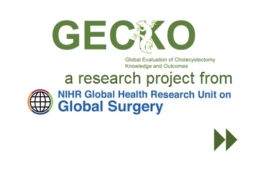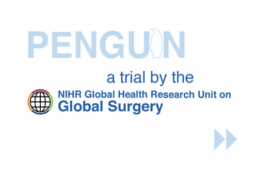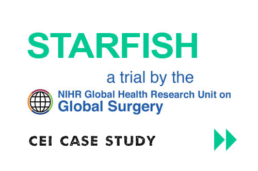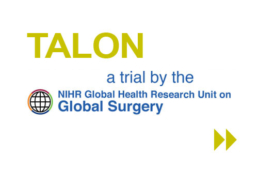The KIWI Study
Centres from a randomized controlled trial assessing interventions to reduce SSI (FALCON, ClinicalTrials.gov, NCT03700749NCT) using data from middle-income countries
Improving surgical outcomes through collaborative research


Background
Surgical site infection (SSI) is the most common complication of abdominal surgery, with substantial costs to patients and health systems. Heterogeneity in costing methods in existing SSI studies makes multi-country comparison challenging. The objective of the study was to assess the costs of SSI across middle-income countries.
Methods
Centres from a randomized controlled trial assessing interventions to reduce SSI (FALCON, ClinicalTrials.gov, NCT03700749NCT) were sampled from two upper-middle- (India, Mexico) and two lower-middle- (Ghana, Nigeria) income countries. The Key resource use In Wound Infection (KIWI) study collected data on postoperative resource use and costs from consecutive patients undergoing abdominal surgery with an incision >5 cm (including caesarean section) that were recruited to FALCON between April and October 2020. The overall costs faced by patients with and without SSI were compared by operative field contamination (clean-contaminated vs contaminated-dirty), country and timing (inpatient vs outpatient).
Findings
A total of 335 patients were included in KIWI; SSI occurred in 7% of clean-contaminated cases and 27% of contaminated-dirty cases. Overall, SSI was associated with an increase in postoperative healthcare costs by 75.3% (€412 international Euros) after clean-contaminated surgery and 66.6% (€331) after contaminated-dirty surgery. The highest and lowest cost increases were in India for clean-contaminated cases (€517) and contaminated-dirty cases (€223), respectively. Overall, inpatient costs accounted for 96.4% of the total healthcare costs after clean-contaminated surgery and 92.5% after contaminated-dirty surgery.
Conclusion
SSI was associated with substantial additional postoperative costs across a range of settings. Investment in health technologies to reduce SSI may mitigate the financial burden to patients and low-resource health systems.




